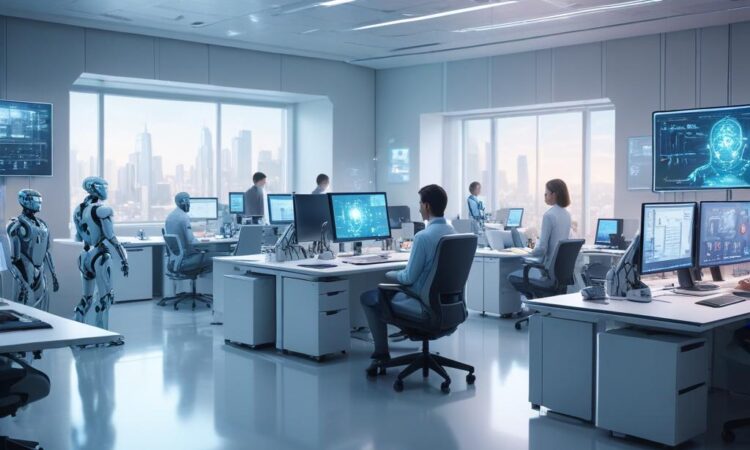AI and Automation in the Workforce: The Impact on Jobs and Reskilling
The rapid advancement of AI and automation technologies continues to spark discussions about their impact on the workforce, particularly in light of recent announcements about AI-powered tools and their potential to replace certain jobs. Concerns around job displacement and the need for reskilling are at the forefront of the debate.
The Rise of AI and Automation
Artificial intelligence (AI) and automation are rapidly transforming various industries, from manufacturing and logistics to healthcare and finance. AI-powered systems can perform tasks that were once considered the exclusive domain of human workers, such as data analysis, customer service, and even creative writing.
The benefits of AI and automation are undeniable. These technologies can increase efficiency, reduce costs, and improve accuracy. For example, in manufacturing, robots can work tirelessly and consistently, producing goods with greater precision than human workers. In customer service, chatbots can provide instant responses to queries, freeing up human agents to handle more complex issues.
The Impact on Jobs
However, the widespread adoption of AI and automation raises concerns about job displacement. As machines become more capable, they can potentially replace human workers in various roles, leading to unemployment and economic disruption. The fear of job losses is particularly acute in industries where repetitive or rule-based tasks are common, such as manufacturing, transportation, and data entry.
It’s important to note that the impact of AI and automation on jobs is not entirely negative. While some jobs may be eliminated, others will emerge as new opportunities arise. The development and implementation of AI and automation technologies themselves require skilled workers, creating new roles in fields such as data science, machine learning, and robotics engineering.
The Need for Reskilling
The changing landscape of the workforce necessitates a focus on reskilling and upskilling. To thrive in a future dominated by AI and automation, workers need to adapt and acquire new skills that are in high demand. This includes technical skills related to AI, data analysis, and programming, as well as soft skills like critical thinking, problem-solving, and creativity.
Governments, educational institutions, and businesses have a crucial role to play in providing training and support for reskilling. Educational programs need to be updated to incorporate new technologies and skills. Governments can invest in retraining programs and provide incentives for employers to invest in reskilling initiatives.
The Future of Work
The future of work is likely to be characterized by a growing collaboration between humans and AI. Instead of replacing humans, AI can augment their capabilities, enabling them to perform tasks more efficiently and effectively. This will lead to a shift in the nature of work, with humans focusing on more complex and creative tasks that require judgment, problem-solving, and social interaction.
As AI and automation continue to advance, it’s essential to consider the ethical and social implications. We need to ensure that these technologies are developed and deployed in a responsible manner, benefiting society as a whole and minimizing the risks of job displacement and inequality.
Conclusion
AI and automation are transforming the workforce at an unprecedented pace. While these technologies offer significant benefits, they also raise concerns about job displacement and the need for reskilling. By investing in education, training, and ethical development, we can harness the power of AI and automation to create a future of work that is both prosperous and equitable.

